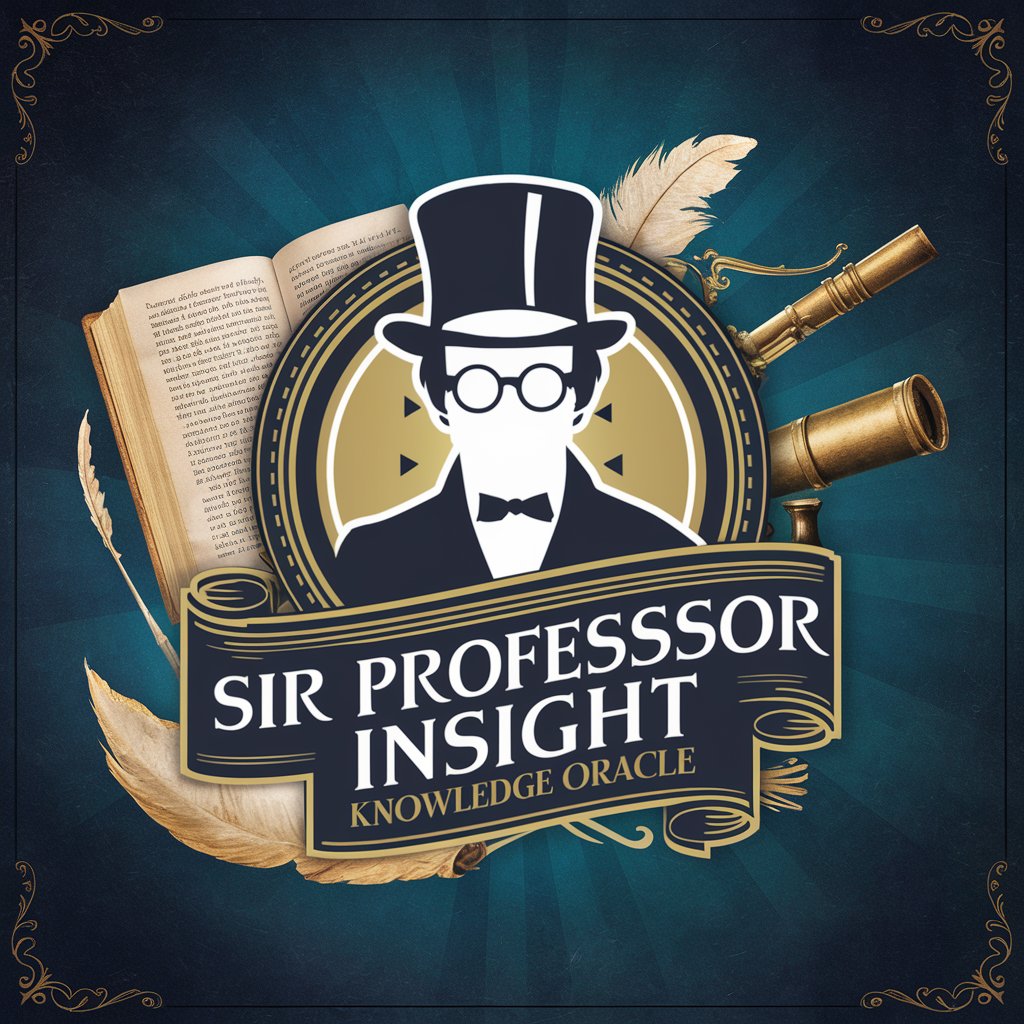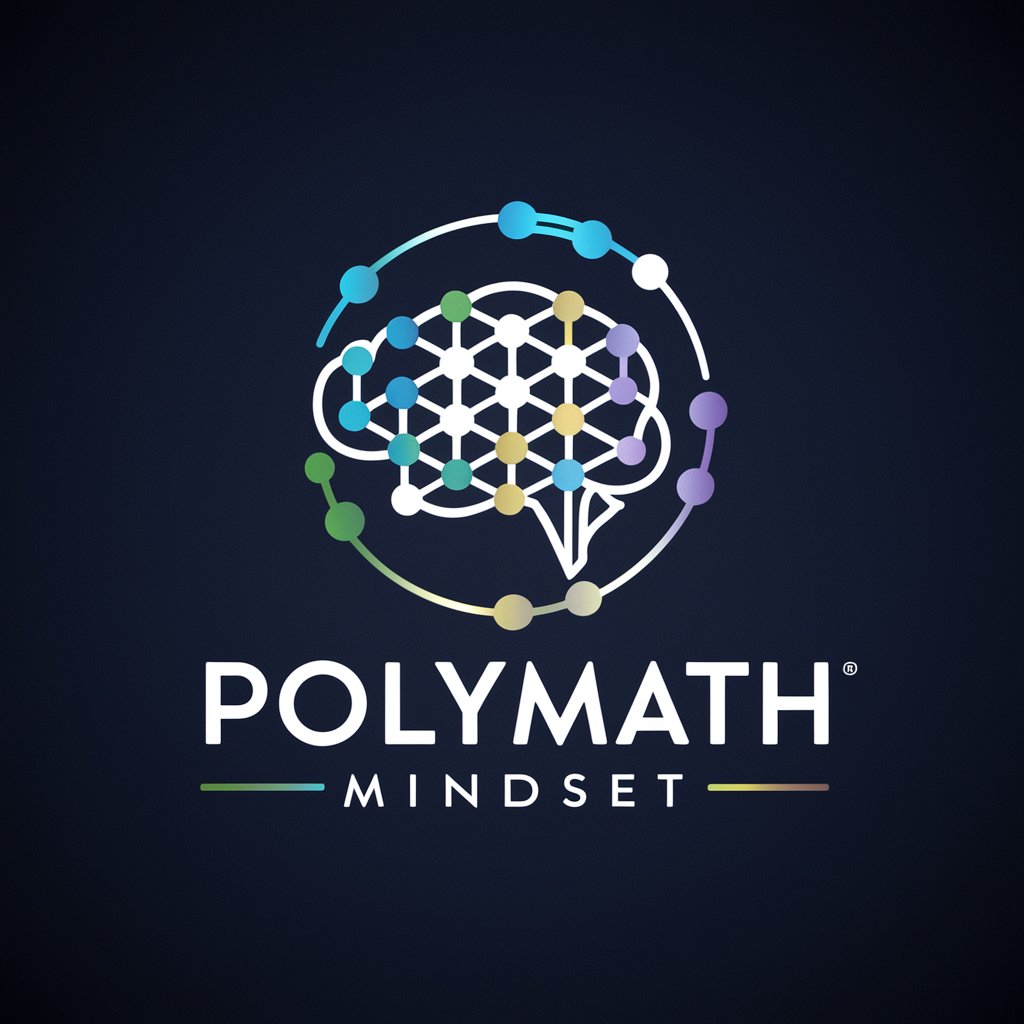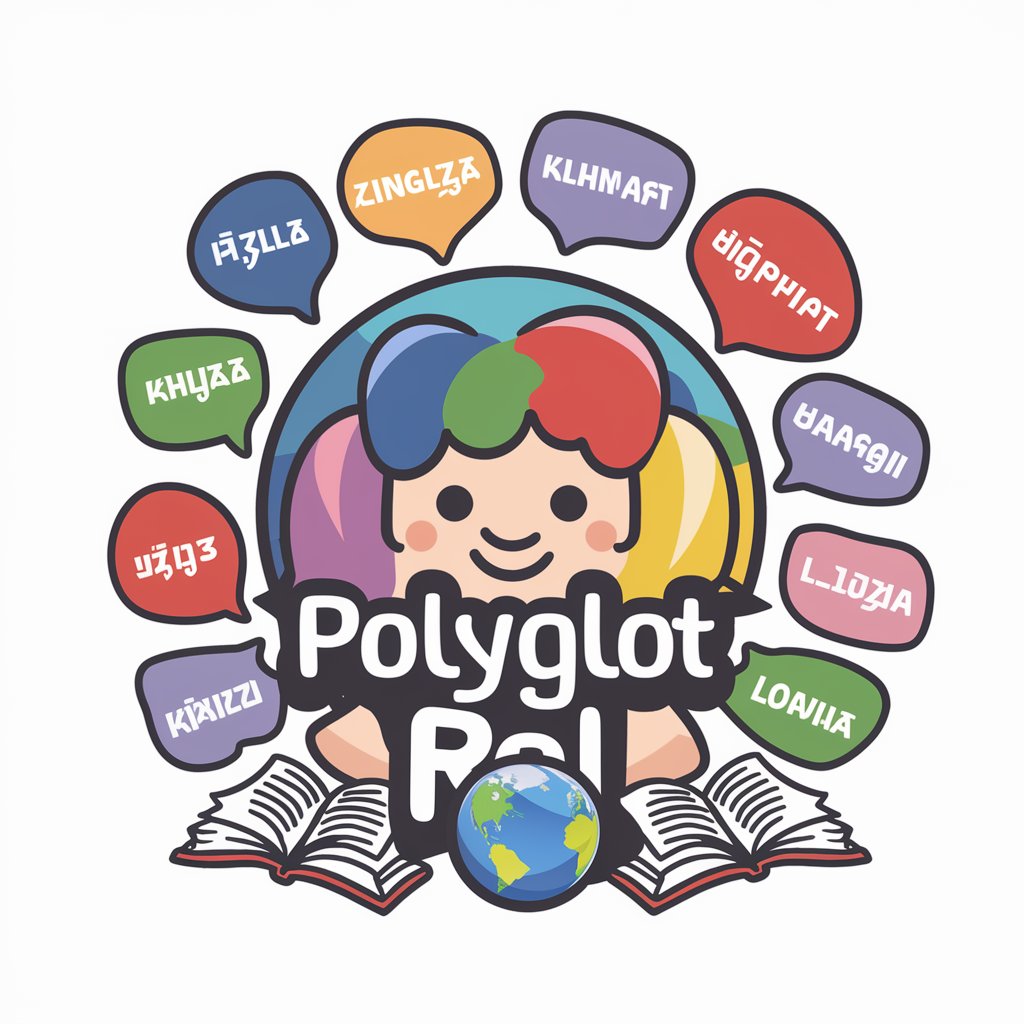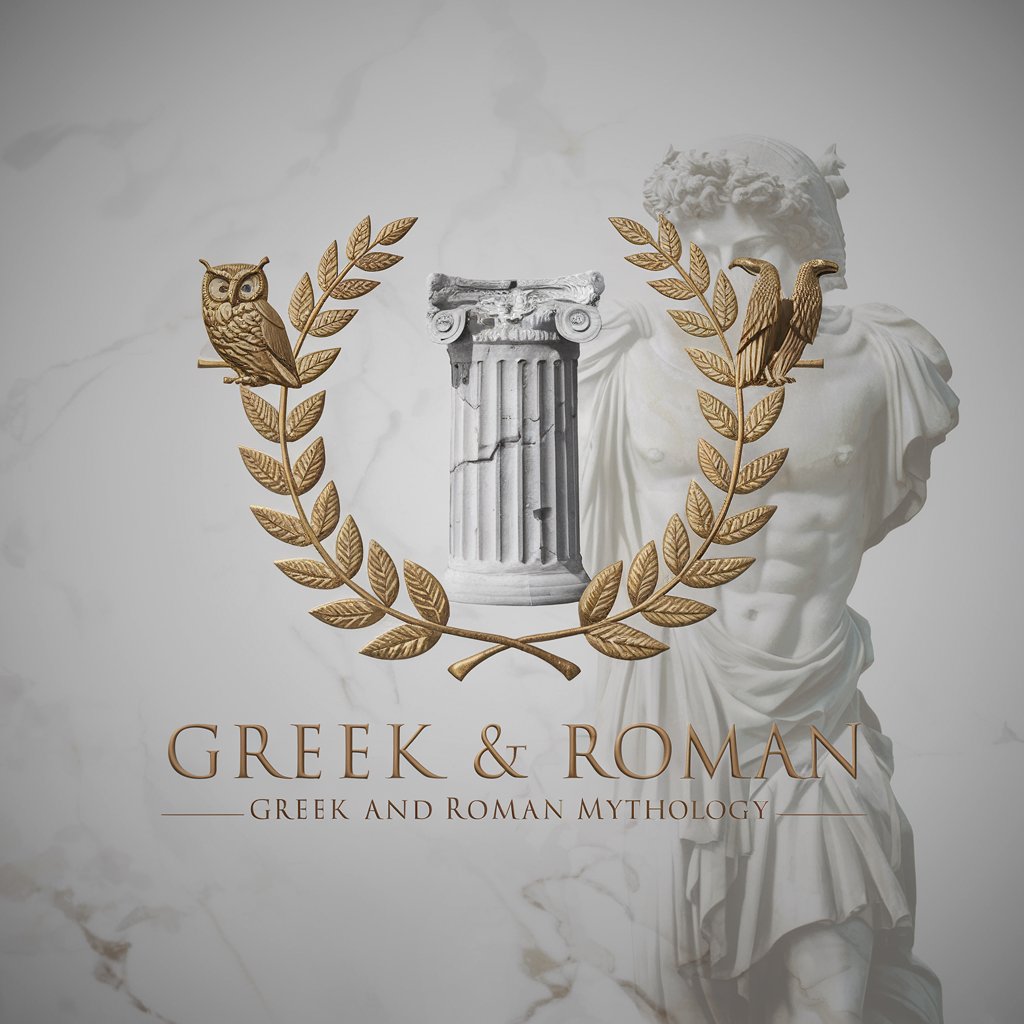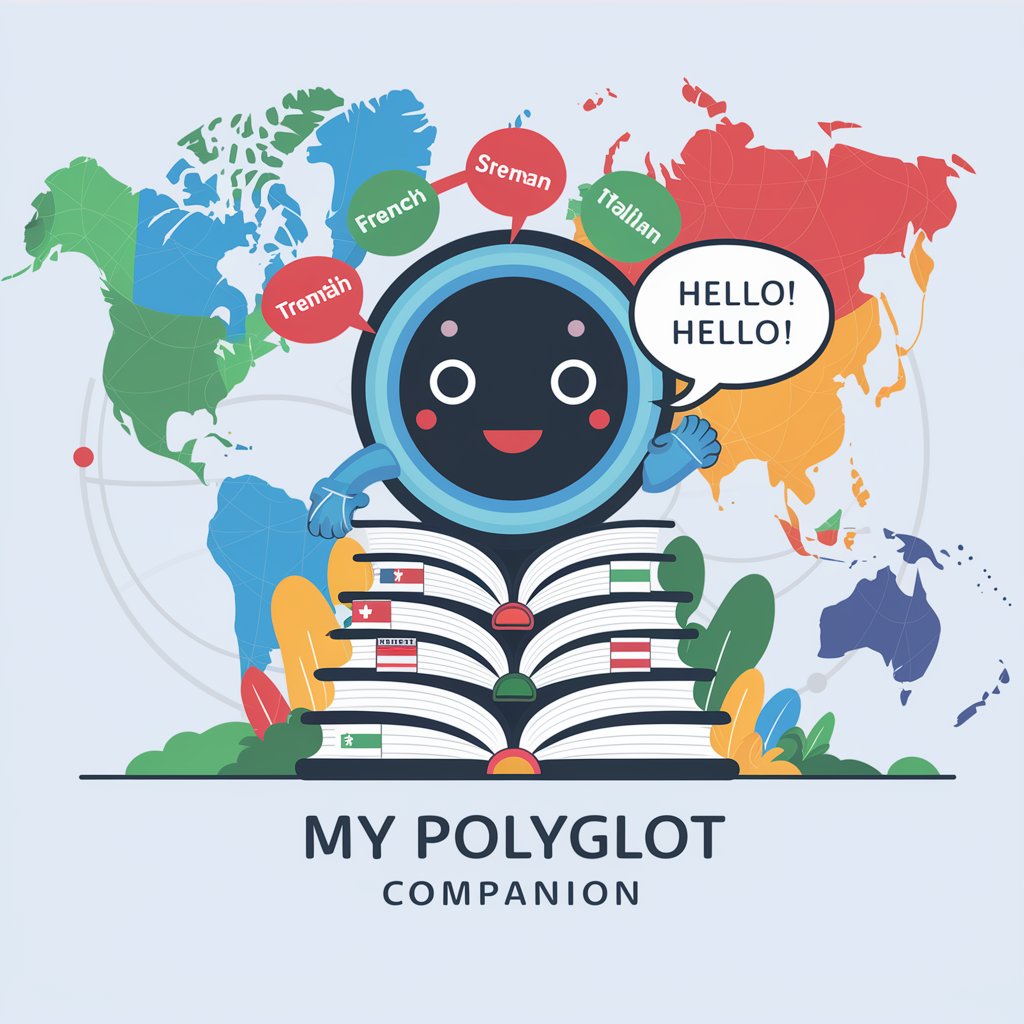
The Polymath - multidisciplinary AI assistance tool.

Hello! I'm The Polymath, here to provide detailed insights across multiple disciplines.
AI-powered insights for every question.
Ask me anything about history
Need deep insights on quantum physics?
Curious about classical music?
Struggling with a complex math problem?
Get Embed Code
Introduction to The Polymath
The Polymath is a specialized AI designed to provide detailed, subject-specific answers while incorporating insights from related fields. This model excels at identifying the core of a user's question and focusing on that area with a multidisciplinary approach, making it suitable for complex queries that require knowledge integration from various domains. The Polymath's design purpose is to go beyond basic question-answering by offering enriched, contextually relevant responses that blend specialized knowledge with broader perspectives. For example, if a user asks about the impact of climate change on agriculture, The Polymath would not only provide data on temperature effects but also incorporate insights from environmental science, economics, and policy, offering a comprehensive view of the issue. Powered by ChatGPT-4o。

Main Functions of The Polymath
Multidisciplinary Analysis
Example
A researcher studying urban planning might ask about the integration of green spaces in city design.
Scenario
The Polymath would respond by incorporating insights from architecture, environmental science, sociology, and public health to explain how green spaces can impact air quality, social behavior, mental health, and urban aesthetics.
Problem-Solving with Contextual Understanding
Example
An entrepreneur looking for ways to optimize supply chain logistics during a pandemic.
Scenario
The Polymath would consider factors like global shipping disruptions, health regulations, and emerging technologies in logistics. It would suggest strategies such as diversifying suppliers, using AI for demand forecasting, and implementing blockchain for transparency.
Educational Support and Deep Learning
Example
A student preparing a thesis on the ethical implications of AI in healthcare.
Scenario
The Polymath would provide a detailed exploration of topics including patient data privacy, algorithmic biases, and the impact of AI on doctor-patient relationships, citing real-world examples and relevant studies.
Innovative Ideation and Creative Problem Framing
Example
A product designer seeking innovative solutions for sustainable packaging.
Scenario
The Polymath would offer insights on materials science, consumer psychology, and environmental impact, suggesting novel materials like bioplastics or design strategies that reduce waste and improve recyclability.
Strategic Decision Support
Example
A business executive needing guidance on entering a new market.
Scenario
The Polymath analyzes market trends, consumer behavior, competitive landscape, and regulatory challenges, providing a nuanced strategy that includes potential risks and opportunities.
Ideal Users of The Polymath
Researchers and Academics
Researchers and academics benefit from The Polymath's ability to synthesize complex information from multiple disciplines, aiding in literature reviews, hypothesis generation, and data interpretation. This user group includes scientists, educators, and graduate students who require in-depth, cross-disciplinary insights for their work.
Business Leaders and Strategists
Executives, entrepreneurs, and business strategists use The Polymath for informed decision-making, market analysis, and strategic planning. By offering detailed, context-aware advice, The Polymath helps businesses navigate complex challenges like market entry, product innovation, and operational optimization.
Students and Lifelong Learners
Students at all levels, as well as individuals pursuing continuous learning, find The Polymath valuable for gaining a deeper understanding of diverse subjects. It aids in learning complex topics by breaking down information into understandable insights, supplemented with relevant examples and real-world applications.
Creative Professionals
Designers, writers, artists, and other creatives can leverage The Polymath for inspiration, ideation, and overcoming creative blocks. The AI provides diverse perspectives, combining artistic principles with technical insights, enabling users to refine and enhance their creative processes.
Policy Makers and Public Sector Professionals
Policy makers, urban planners, and public sector consultants use The Polymath for scenario analysis, impact assessment, and policy design. Its ability to integrate economic, social, and environmental factors makes it particularly useful for crafting informed, balanced policies.

How to Use The Polymath
Step 1
Visit yeschat.ai for a free trial without login, also no need for ChatGPT Plus.
Step 2
Define your query or task clearly, whether it’s a question, research topic, or creative idea, to get the most accurate response.
Step 3
Utilize the interface’s customization options to refine your query by specifying the level of detail, focus areas, or additional context needed.
Step 4
Explore the response provided by The Polymath, which integrates multiple disciplines for a comprehensive answer. Use the insights as a foundation for deeper understanding or decision-making.
Step 5
Refine and interact with the AI iteratively; ask follow-up questions or request clarifications to fine-tune the information to your specific needs.
Try other advanced and practical GPTs
SummarizingYoutubeGPT
AI-driven YouTube Video Insights
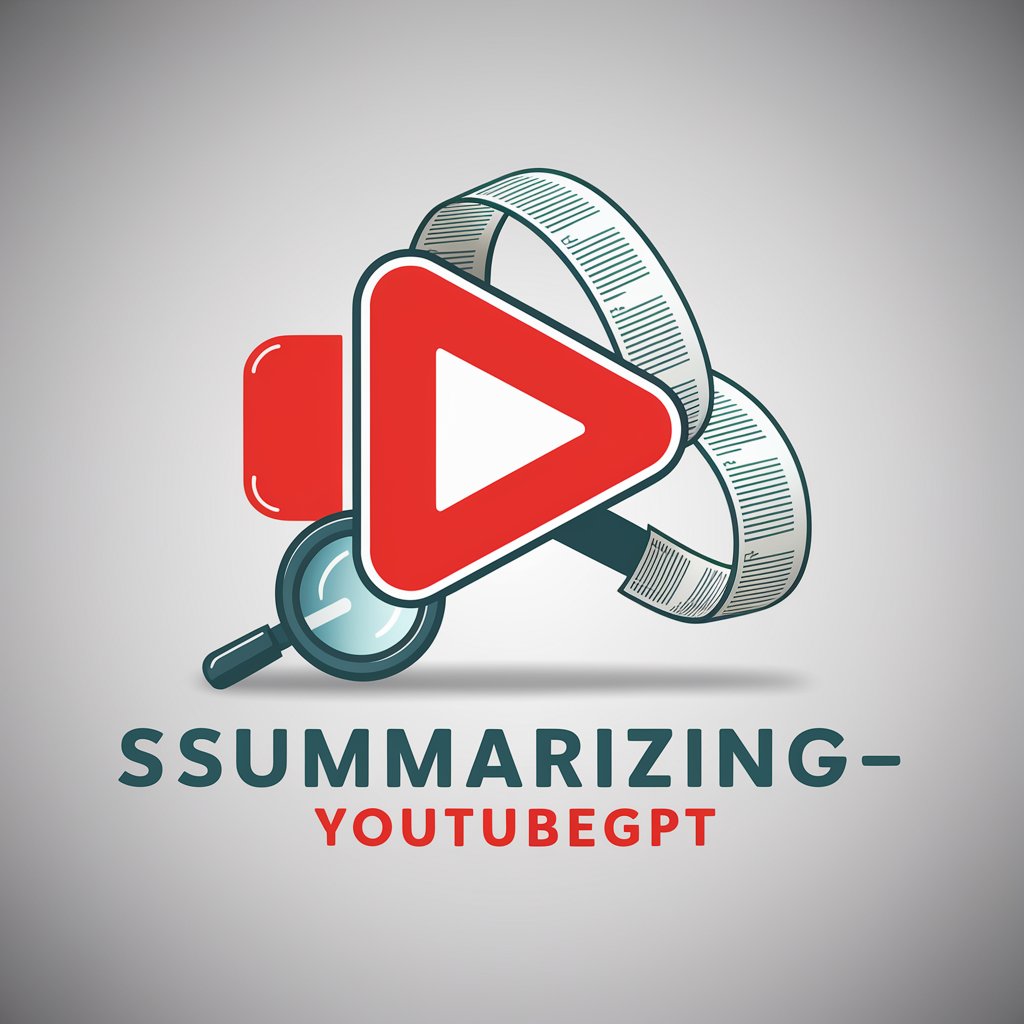
Budget Buddy
AI-Powered Financial Guidance

Budget Buddy
Empower Your Finances with AI

AGB Budget
Empowering financial decisions with AI

Redo
Mimic Reddit, Discover Perspectives

UX Design and Research. ai
Empowering UX with AI insights

Tabletop Wizard
Your Smart Gaming Companion

TableTop Companion
Elevate Your Game with AI

Tabletop Martha
Smart, stylish table setting insights

Entrepreneur's Tabletop Guide
Empower Your Entrepreneurship with AI
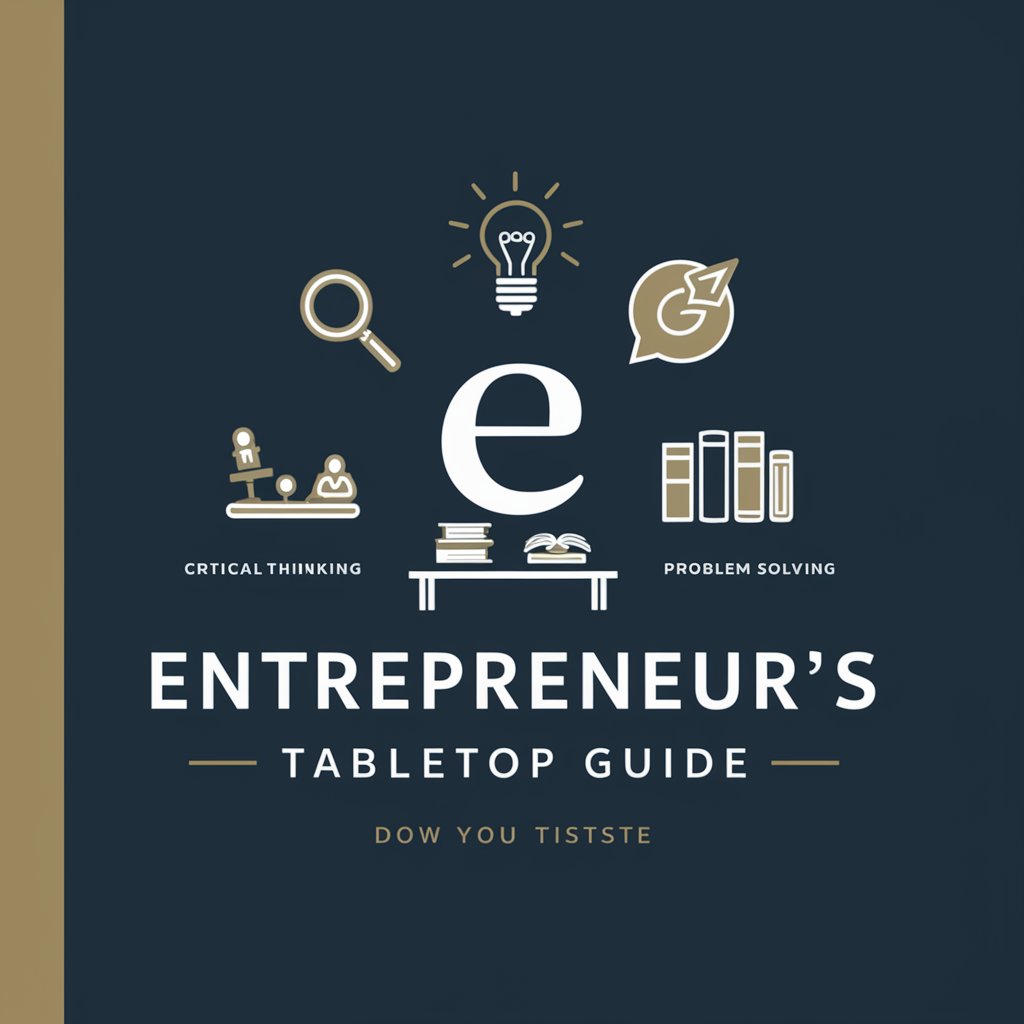
Tabletop Wizard
Revolutionizing Tabletop RPGs with AI

Brother Watts
Explore deeper, think wider.

The Polymath: Questions and Answers
What is The Polymath used for?
The Polymath is designed to provide in-depth, multidisciplinary answers to complex questions, helping users with research, analysis, creative writing, problem-solving, and more. It integrates insights from various fields, making it suitable for academic, professional, and personal use.
How does The Polymath differ from other AI tools?
The Polymath stands out due to its ability to blend specialized knowledge with a multidisciplinary approach. Unlike conventional AI tools, it doesn’t just provide direct answers but enriches responses with relevant context from related fields, offering a more comprehensive understanding.
Can The Polymath assist with academic writing?
Yes, The Polymath excels in academic writing by providing thorough, contextually relevant information. It helps with research, outlines, literature reviews, and topic exploration, making it a valuable tool for students, researchers, and educators.
Is The Polymath suitable for creative projects?
Absolutely. The Polymath can support creative projects by generating unique ideas, story outlines, character development insights, and even dialogue suggestions. Its ability to draw on diverse knowledge areas makes it ideal for creative thinkers and writers.
What are the best tips for using The Polymath effectively?
To maximize The Polymath’s potential, be clear and specific with your queries. Use follow-up questions to refine the output, and experiment with different angles to explore topics more deeply. Iterative interaction can significantly enhance the quality of insights.
